Being black in Brazil
Brazilians with an African background deal with racism and a lack of representation. Roberta heads a small NGO that works to reaffirm Afro-Brazilian identity, build girls’ self-esteem and discuss prejudice in daily life.
Listen to the report by Milton Bragatti in Sao Paulo:
View the Frida Kahlo Association’s brochure online.
Peace through the arts in Bahrain
Since February 2011, the tiny country of Bahrain in the Persian Gulf has been plagued by sectarian divisions. But Wafa believes that reconciliation is possible – and one of the ways she is bringing people back together is with an art community she founded, called Malja.
Listen to the report by John Ridley:
Peace through the arts in Bahrain
Check out Wafa’s arts community, Malja, on Facebook.
Democracy goes grassroots in Montreal
North America’s longest student strike in Canada’s French-speaking province Quebec is leading to new and interesting social developments in the region. After Premiere Jean Charest passed an emergency law to quell protests in May 2012, communities defied this law by holding nightly “casseroles” marches – a phenomenon that is now spreading across Canada. The community-based activity is spawning neighborhood assemblies throughout Montreal, where residents are discussing ways to combat everything from social service cutbacks to police repression. Jerome Charaoui, an IT consultant at a Montreal college, got together with some friends to start the Hochelaga-Maisonneuve area assembly.
Listen to the report by Carmelle Wolfson:
Russian activist changes Moscow by counting cars
Maksim Kats is not your typical politician. The 27-year-old was elected as deputy in the local council in Moscow and has since started counting parked cars in the city with a group of volunteers. They’re collecting hard statistics to show that the city is not friendly to pedestrians – and hopefully change the cityscape in small ways.
DW’s Geert Groot Koerkamp spoke with Maksim and the volunteers helping him in Tverskaya, Moscow’s main shopping street. They have been counting cars and people in several locations in the city, including the district where Maksim is a deputy in the local council. At the same time, they also record other things that are not right, like illegal street advertisements.
Listen to the report from Geert Groot Koerkamp:
Young global leaders talk education
What will life be like in the year 2030? How can we help shape tomorrow’s world today? This is the question that Young Global Leaders from the world of politics, science, business and the arts are turning their attention to.
They are all under the age of 40 and all looking for solutions for the future. The “Young Global Leaders” initiative was set up by the founder and President of the World Economic Forum, Klaus Schwab. The five-part series looks at the issues of health, the environment, employment and the fight against poverty. In this episode, we meet three people who talk to us about their ideas on education: Subhash Dinar, senior vice-president of the international IT firm Infosys; Jimmy Whales, founder of Wikepedia; and Peter Bisanz, a film director from the US.
Watch this DW video to find out more:
Bolivian gives language a digital future
Aymara is spoken by fewer and fewer Bolivians. But 30-year-old Ruben is now working with Facebook and Wikipedia to make sure his indigenous language is armed for the future.
Listen to the report by Peter Teffer in El Alto, Bolivia:
Bolivian gives his language a digital future
Visit Jaqi Aru’s website.
Check out the Aymara version of Wikipedia here.
Giving Kenyans a voice of their own
For outsiders, the slums in Africa’s big cities seem like a world away. The media usually reports only the most horrific stories. But a couple of Kenyan journalists say that it doesn’t have to be that way. Instead of making movies about slum dwellers, they’d rather help these young people become media professionals themselves.
Watch this DW video for more.
Teaching Indians to read Karaoke style
Social entrepreneur Brij Kothari has set up an innovative project to teach Indians how to read and write by simply singing film songs in front of the television. Kothari’s trick is to subtitle Indian Bollywood songs in the same language in which they are sung in an effort to appeal to the 300 million or so Indians who can’t read or write. As they sing along, they learn to read.
Watch this DW video for more.
Earning trust one child at a time
In an underprivileged neighborhood in the Polish city of Lublin, alcohol is a serious problem and most of the kids here grow up with single parents who don’t give them the attention they need. That’s where Kasia comes in. The young engineer coordinates a group of volunteers who spend time with the kids after school, helping with homework and playing games. As reporter Magdalena Fijalkowska found out, it’s not just the kids who are benefitting, but Kasia as well.
Listen to the report by Magdalena Fijalkowska:
French student believes in inter-religious dialogue
In a secular country like France, religion is rarely mentioned. But one young student is campaigning to make sure that Muslims, Christians and Jews talk to each other about their faith. Samuel Grzybowski believes that interfaith is central to helping France establish a strong identity in the 21st century.
Listen to the report by Naomi Scherbel-Ball in Paris:
French student believes in inter-religious dialogue
Here is Coexister’s website, in French.




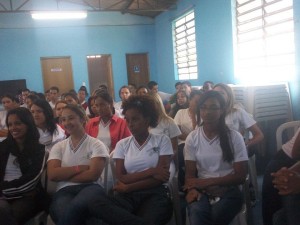
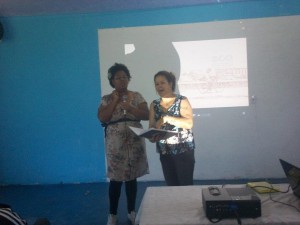



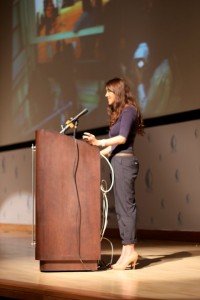
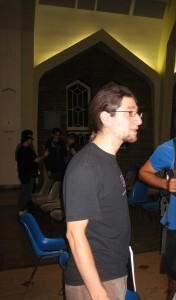
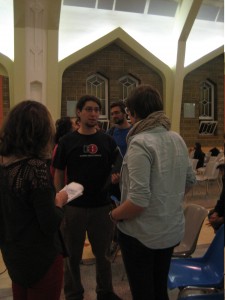
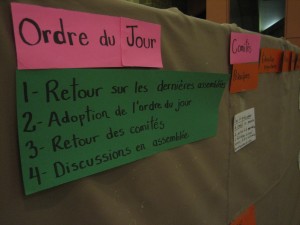



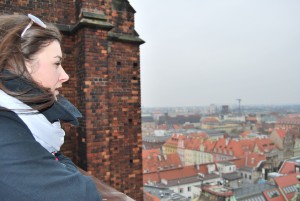








Feedback